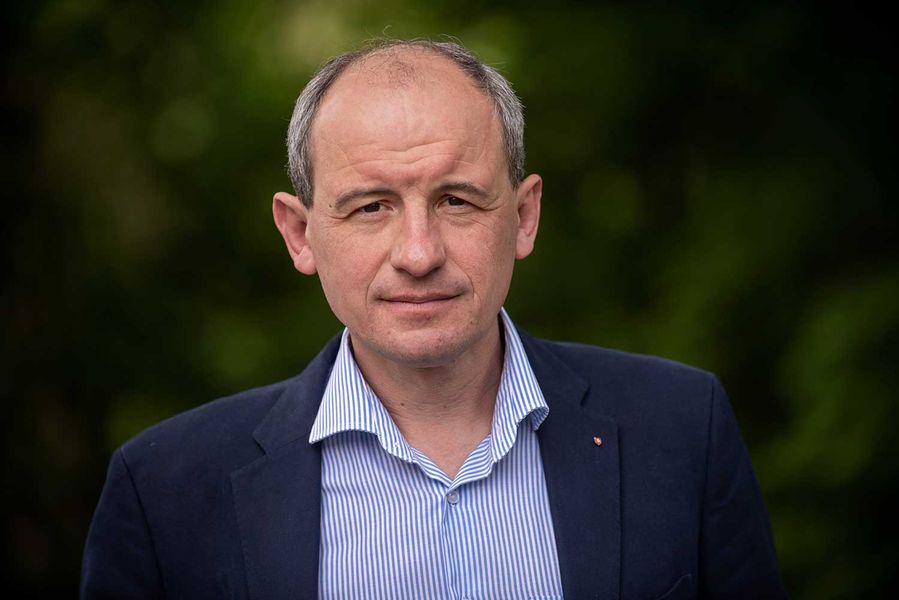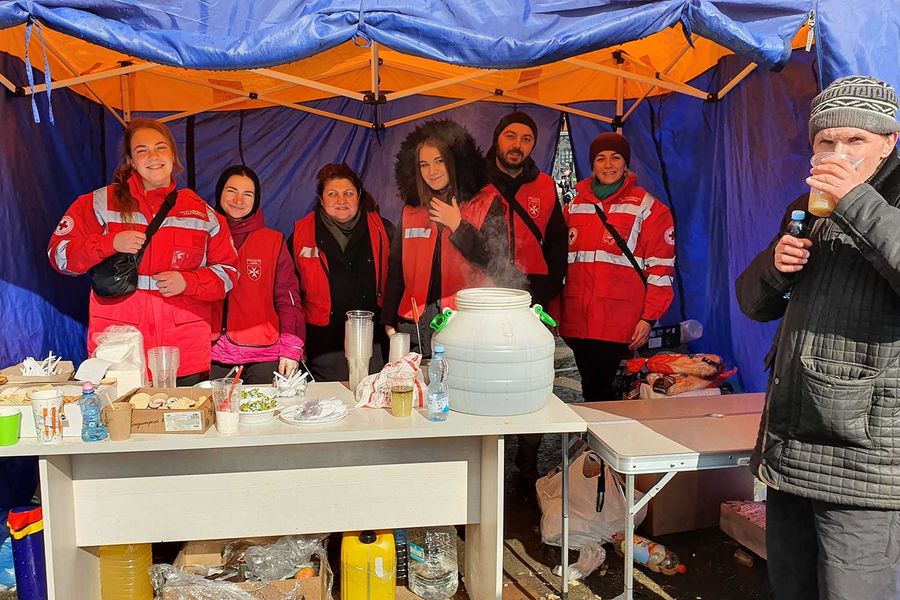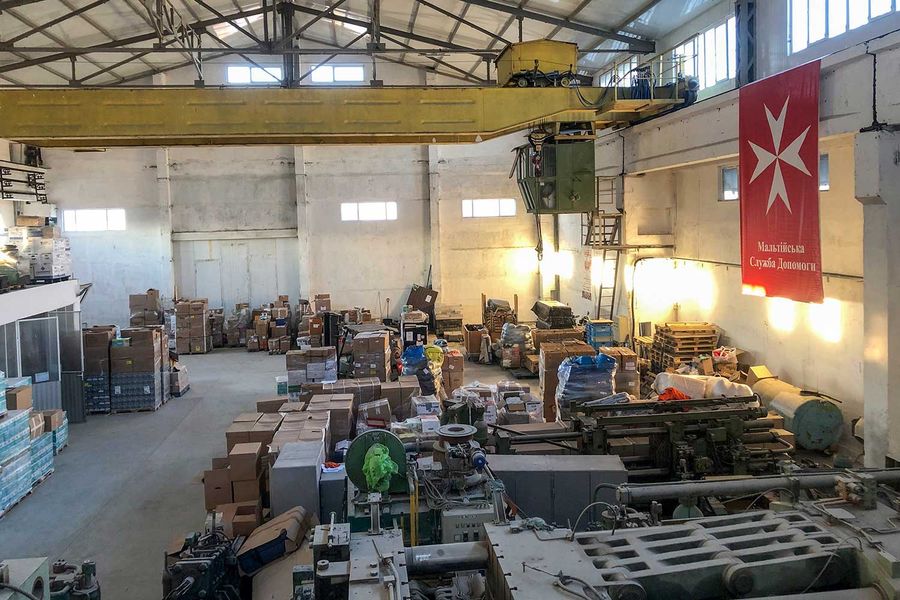The humanitarian situation in Ukraine | Interview with Pavlo Titko, Head of Malteser Ukraine
Pavlo Titko, head of Malteser Ukraine in Lviv, has been on permanent duty since the start of the Russian invasion in Ukraine on 24 February 2022. He tells us about the current humanitarian situation in Ukraine, how the people are feeling, which relief supplies are most urgently needed and how he himself is dealing with this extreme situation. (As of: beginning of April 2022)

What is the current situation in Western Ukraine?
Pavlo Titko: The situation is constantly changing. It depends on what is happening at the front. Sometimes there are more, sometimes less refugees, and that is why our work is constantly changing.
How would you describe the mood?
The mood is very sad. You get sad news all the time, like the latest news and pictures of Bucha close to Kyiv. Many acquaintances and relatives who lived close to Bucha are now on the run. They have fled before and haven’t stayed in the area. Otherwise, they would no longer be alive.
Are more refugees coming to Lviv at the moment?
Now fewer refugees are arriving at the train station. We experience this when we distribute food. The number of portions we distribute has changed. Now many people in need come to the station because they know that our kitchen is there. The clients have changed a bit. It's not only refugees, but also people in need and homeless people. The people who have stayed here are those who haven’t had the courage to leave the country and stay in emergency shelters. They don’t know what is next. They don’t know whether they should head west tomorrow, whether they will stay here in Lviv for a while or whether they should return to their homes. You can imagine how difficult it is for them.
Does the Order of Malta in Ukraine still reach the people in Eastern Ukraine?

Yes, it is complicated, but we try very hard to send relief supplies to where it is needed most. This is not always possible. Mariupol is completely closed, and we can hardly reach people there. But in other areas it works somehow. We work a lot with territorial communities. Basically, these are the municipalities of certain territories. They also send their transporters to pick up relief supplies. We send relief supplies in all directions - from Kharkiv in the north all the way south to Odessa. It doesn't work as well as we would like. It would be more effective to send large lorries but that is not possible, so we send smaller transporters.
On how many humanitarian corridors can you rely on?
We do not trust any humanitarian corridors. All relief supplies reach the villages via detours. The people who come from there know the routes and the Russians have not occupied yet everything. It is still possible to evade the blockades.
What is the most effective way you can help the people in Ukraine right now?
It is definitely medicine and food. Those are the two types of aid that we, but also other aid organisations and volunteers, are sending to the east. We also need transportation, especially ambulances. We know that 70 civilian ambulances have been destroyed and they need to be replaced somehow. Even apart from the war, Ukrainian ambulances are of a completely different standard than in Germany and ambulances from Germany are a great support for our health system.
How do you and your colleagues deal with being exposed to permanent danger?

Everyone does it the way he or she can. There are people who go downstairs and hide in the basement every time there is an air raid alarm, but most of our employees tend to be a bit less cautious. If you hide every time you hear the sirens, you wouldn't be able to work. You don't take it very seriously, although bombs have been dropped in our town. It depends a lot on one's personal attitude. It's the same at work and at home. Half of the people in the flats are in the cellars every night, and the other half sleeps in their apartment because they have to go to work in the morning. So it's very different.
Did you get used to this situation?
It's a little different for me or for some of the staff. We already got used to it in 2014, not to the same extent, of course, but we have already experienced and seen it in Eastern Ukraine. We have experienced attacks, we have worn protective vests during our trips, we have heard the stories of hundreds of people - through the project we have been doing with Malteser International since 2014. We know many stories because of our psychosocial support. I translated some of the evaluations. I have heard these stories 20, 30 times in detail so I’m prepared differently. I roughly knew what was going to happen. Unfortunately, it turned out much worse.
What is your impression of the refugees in Lviv?

How can I say this so that it doesn't sound so brutal? In most cases they are no longer healthy because they are traumatised, overwhelmed, and unstable. They just don’t know what will happen next. Yes, they do not know what decisions to make tomorrow. They do not know if their children will be able to go back to school. They do not know what it will be like to live abroad. They don't know the language there. Most of the people from East Ukraine have never been abroad. It is extremely stressful and traumatising.
How can you help these people?
What do you tell them so that they feel better?
The problem can only be addressed properly if these people no longer have to live in danger. Then they can be treated psychologically, but I can't imagine how many people. How many psychologists, how many specialists will we need to reach everyone? It probably won't be possible. As long as these people are not safe yet, you can only show them that you support them. That's probably all you can do.
How do you motivate yourself every day?
You just try to stay professional, just do the work. We have very big tasks ahead of us. We are predestined because of our situation: We are located in the west and we have your help. We can make a difference. Perhaps our motivation is that we can really help some people.
The interview was conducted at the beginning of April 2022.








